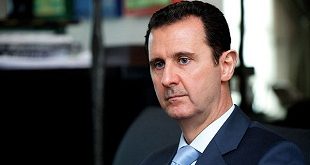c) Failure to understand Impact Investing.
Whereas the area of Impact Finance and Social Enterprise has grown over the last ten years, the implementation of such projects has moved faster than the idea itself. Many people, however, still view projects funded by both private/public investors as development aid.
The report by the Ministry of Education is telling; it says “Bridge International is a profit making body and not a free services provider as they claim.”
This was indeed not a new discovery because the schools actually describe themselves as low cost private education providers. The thinking that the schools were providing/supposed to provide free education stems from the misunderstanding of Impact Finance as a model. Institutional investors like the World Bank need to take effort to engage in advocacy to explain this model before engaging in the investing of ambitious projects of this nature.
The other misconception also comes from the Non-profit/Non-Governmental Organisations in the region regarding the Impact Investing model. A consortium of organisations advocating for the right to education in Uganda, in a press statement, welcomed the ruling of the court and called upon the “shareholders” of the Bridge sSchools; notably Mark Zuckerberg and the world to reign in the schools. They also noted that the responsibility of providing education lies primarily with the government. Apart from the apparent misunderstanding regarding the difference between investors and shareholders, the fundamentalist human rights argument that the state should provide education fails where, as is the case for Uganda, the state is unable to provide education to a large section of the school going children. A parent who is unable to access the government education should be able to secure the services of a cheap and adequate private educator to help his/her child realise this right. Synergies between social entrepreneurs and non-profits working on the area of education need to be pursued further to avoid conflict and apprehension.
At the center of any social enterprise lies the concept of disruption and innovation. As noted above, the education system and standards in Uganda are below what is desired. Teachers are often absente and the school structures poor. The Uganda National Examinations Board in their National Progress on Education report noted recently that “only 21.8 percent and 38.8 percent of Primary Teachers College students were proficient in numeracy and literacy in English respectively.”
One of the charges leveled against the Bridge Schools was that they did not have qualified teachers registered with the Ministry of Education. The registered teachers would have to come from the said Primary Teachers College. Clearly, the sample space as highlighted in the report above is not where anyone interested in education disruption would be hire teachers. It is on record that Bridge Schools were actually hiring Ugandans who had completed university education, orienting them in the curriculum, and allowing them to teach.
Closely related to the quality of teachers is the mode of delivery and the curriculum. The Bridge Academies were charged with teaching a curriculum that was not Ugandan. In their response, the schools indicated that the schools employ “a digital tablet that guides the teachers through each day’s lesson.” The parents of the children who attended the schools indicate that the pupils were much better off than they were in the UPE curriculum.
In closing the Bridge schools, the Ministry of Education notes that; “there is a fear that by the time the children reach primary seven, they may not be adequately prepared to sit the exams”. Obviously, this was a speculative statement. The alternative could have been subjecting the students to the exams and assess their competence and the effectiveness of the new delivery method.
The interest of the government, investors, Bridge International academies and anyone else concerned about the over 3 million children who are not served by Uganda’s education system should be to innovatively find collaborative ways to work together to serve this population.
****
Stephen Tumwesigye leads the Impact Finance, Social Enterprise and Non Profit advisory practices at TASLAF Advocates.
 The Independent Uganda: You get the Truth we Pay the Price
The Independent Uganda: You get the Truth we Pay the Price



Well-stated. It should be the interests of the under-served children, who after all are the future of the nation, that should be considered. Not the self-serving interests of the individuals and organisations that either are not benefiting or stand to be shown-up for their inadequacy in serving the children, their families and the nation as a whole.